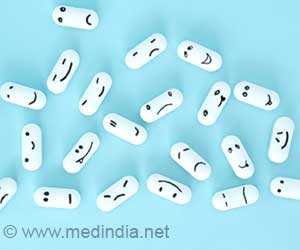Young men with a poor diet mostly suffer from depression. However, a healthy Mediterranean diet can reduce the symptoms of depression in young men.
- Young men with a poor diet may suffer from depression
- Switching to healthy Mediterranean diet can reduce symptoms of depression
- Depressed young men should immediately consult a doctor or psychologist and a nutritionist for treatment
Impact of Mediterranean Diet on Depression
Lead researcher Jessica Bayes, a PhD candidate in the UTS Faculty of Health, said that the study was the first randomized clinical trial to assess the impact of a Mediterranean diet on the symptoms of depression in young men (aged 18–25).“We were surprised by how willing the young men were to take on a new diet,” Bayes said. “Those assigned to the Mediterranean diet were able to significantly change their original diets, under the guidance of a nutritionist, over a short time frame.”
“It suggests that
medical doctors and psychologists should consider referring depressed young men to a nutritionist or dietitian as an important component of treating clinical depression
,” she said.The study contributes to the emerging field of nutritional psychiatry, which aims to explore the effect that specific nutrients, foods and dietary patterns can have on mental health.
The diet used in the study was rich in colorful vegetables, legumes and whole grains, oily fish, olive oil and raw, unsalted nuts.
“There are lots of reasons why scientifically we think food affects mood. For example,
around 90 percent of serotonin, a chemical that helps us feel happy, is made in our gut by our gut microbes.
There is emerging evidence that these microbes can communicate to the brain via the vagus nerve, in what is called the gut–brain axis.”Roughly 30 percent of depressed patients fail to adequately respond to standard treatments for a major depressive disorder such as cognitive behavior therapy and anti-depressant medications.
“Nearly all our participants stayed with the program, and many were keen to continue the diet once the study ended, which shows how effective, tolerable and worthwhile they found the intervention.”
Source-Eurekalert
















